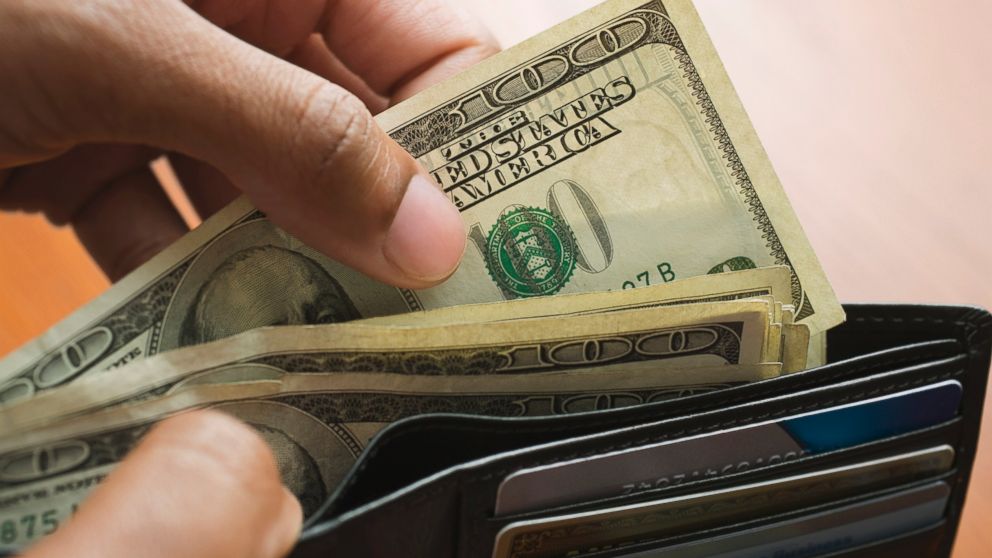Are You Cash-Strapped? Avoid These 5 Potential Scams

— -- If money’s tight, you’re probably looking for any way to get some cash and get it quick. But if you don’t do your homework, you could end up in a worse situation.
Scam artists prey on vulnerable consumers by making them think they have solutions to financial woes when they’re really just trying to take their money.
With consumer debt at a whopping $11.28 trillion, it’s easy to see why con artists try to take advantage of people in dire financial straits.
“When the economy goes into recession, these organizations and scam artists come out of the woodwork,” says Steve Bernas, president and CEO of the Better Business Bureau of Chicago and Northern Illinois. “People who need money are really grasping at any straw to stay afloat.”
Here are five potential schemes to watch out for:
- Advance-Fee Loans: Any loan company that asks you to pay fees upfront before approving a loan is breaking the law. In this scheme, the con artist insists on the consumer paying taxes or fees before they’ll issue the loan. (A legitimate lender also will charge fees; but they’ll take it out of the money they lend you.) Red flag No. 1: If a loan company doesn’t care about your credit history, you probably can’t trust them. They don’t care about your credit because they never intend on giving you the loan. Red flag No. 2: Don’t trust a loan company that keeps calling you. Often these scams are based in other countries. Scammers may “spoof” local numbers, so it looks like you’re getting a call from a legitimate U.S. number, but you’re not.
- Work-from-Home: The potential to earn cash from your bed sounds great. The problem is that scam artists know this, too – and they try to sell people expensive starter kits or training or make them put in lots of unpaid hours before their fake “opportunity” disappears. These schemes can take many forms, including envelope-stuffing, assembly or craft-work, rebate processing, online searching and medical billing. The reality, says the FTC – “many of these jobs are scams.” Make sure you thoroughly research any work-from-home offer and fully understand the compensation plan. For more, the FTC's website HERE.
- Lotteries and Giveaways: Legitimate sweepstakes do not ask you to pay money to increase your odds of winning. Nor do they ask you to wire money to insure your winnings or pay taxes before you can collect your prize money. If you receive a prize notification mailed by bulk rate, it’s probably fake; ditto with overseas lotteries. And beware any sweepstakes offer that says you have to attend a sales presentation to win a prize. You will be put into a high-pressure meeting that forces you to act fast before the prize or opportunity is gone.
- Mortgage Relief: Watch out for foreclosure rescue scams. Some companies offer phony counseling or phantom legal help. The scammers tell you to a pay a fee for them to negotiate with a lender to lower your mortgage payments. But once you send your money, they stop communicating with you, leaving you in worse shape with your lender. Other scams involve title fraud, such as “rent-to-buy” schemes in which scammers have you surrender the title to your house. Similarly, the bait-and-switch loan scam asks you to sign for a new loan to make your mortgage current, but in the documents, there’s a section that surrenders the title to your house in exchange for the rescue loan.
- Student Aid: The first thing to remember is don’t pay to find aid money. The Free Application for Federal Student Aid (FAFSA) is – just like the name says – free. Use the FAFSA to apply for federal grants and loans. You don’t need to pay a service to find these for you. If you’re struggling with student debt, the government can help you consolidate your student loans -- for free. For info on consolidation as well as federal student aid programs, check out https://studentaid.ed.gov/
Inoculating yourself against rip-offs:
- Deals that seem too good to be true most likely are. Don’t fall for miracle offers.
- Do not pay with money orders, cash or wire transfers whenever possible. Often times a credit card company can stop a fraudulent payment within 60 days.
- Research companies before doing business. Check with the Attorney General in the state in which the company operates, the Better Business Bureau and other online consumer sources.
- For trustworthy, non-profit consumer credit help, contact the National Foundation for Credit Counseling.
- Check out the Internet Crime Complaint Center and the Federal Trade Commission for more tips and ways to file a complaint about a scam. You can do so at the BBB too.
Got a consumer problem? The ABC News Fixer may be able to help. Click here to submit your problem online. Letters are edited for length and clarity.



